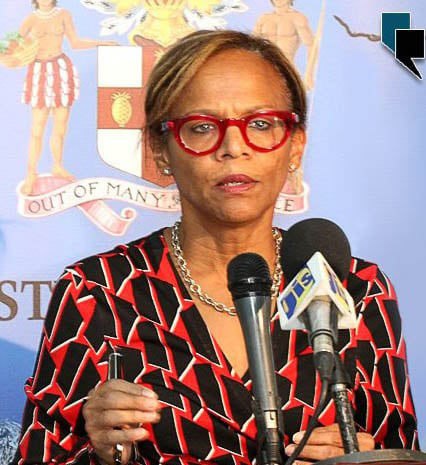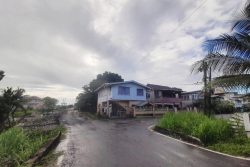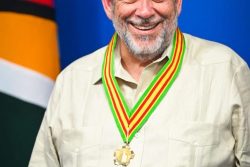…blames administration changes
(Trinidad Express) Acting vice-president of operations at the Caribbean Development Bank Therese Turner-Jones believes Trinidad and Tobago and the CDB’s “story” is not impressive, given that many specific projects were not completed despite the benefits they would bring. Turner-Jones on Wednesday attributed this large gap between identified projects and completed ones to administration changes.
“In the last country strategy, we identified over $430 million in projects and less than $10 million actualised. So, that is a concern because in the strategy we identified doing more on water and sanitation…there is a lot of room there and we are doing some technical assistance for your master plan for water resources in the country, but it hasn’t been outstanding in terms of what we have been able to do,” she said.
She was speaking during a panel discussion hosted by the Central Bank of T&T, “Building T&T’s Economic and Financial Resilience—The Role of Multilateral Financial Institutions”, at the Central Bank auditorium in Port of Spain.
Drawing from chief economist and general manager at the Department of Research of the Inter-American Development Bank Dr Eric Parrado Herrera’s comment on the impact of democracy, she said there was a need for deeper dialogue with citizens as opposed to only policymakers.
Turner-Jones said, “Parrado Herrera mentioned something just in passing about democracy and the way we interact with members of our government who are members of our institutions… that dialogue tends to focus on a relationship at a point in time and I think what we need to be doing is going deeper where the dialogue is extended to civil society and the beneficiaries so it is not just seen as being associated with a particular administration.”
She continued, “Trinidad’s story, I think, for me, is a good story for maybe how not to do a country strategy meaning it’s typically not aligned with an election cycle and what happens is if it doesn’t get done in an administration then it’s abandoned and we have seen this across the region.”
Turner-Jones said administrations dump projects which are considered to be fine because they may not align with their mandate or they do not see the benefits of it during their administration.
Skilled workers and productivity
Director representative of the Development Bank of Latin America and the Caribbean Bernardo Requeña, in his presentation, showed there was a large drop in high-skilled workers as well as productivity in T&T.
“Actual productivity was negative in the past three years and that’s a huge issue. For example, of the nine most important sectors, seven had very low productivity while two had high-productivity—energy and trade—but the rest are low.”
Parrado Herrera added that to improve this, multilateral institutions and governments need to “think long-term” and invest more to ramp up productivity and increase the number of high-skilled workers.
He said to further support economic transformation, digitalisation is greatly needed but is also hindered by low numbers of high-skilled workers and a dip in productivity levels.
The IDB’s lending framework for the 2021-2025 country strategy period is US$250 million with six operations projects costing US$488 million in the areas of institutional capacity, water and sanitation, trade, housing and health.
So far, the recent approval has been the programme to accelerate the digital transformation agenda which cost US$42 million and was rolled out last December.
He said there are 29 projects valued at US$9.8 million in the areas of digital transformation, urban development, trade and education, among others.
Parrado Herrera said another way of having long-term investments could be through reforms which are difficult to implement in many countries. He said while sometimes these multilateral institutions may have a plan ready, political issues get in the way and create challenges in the rollout process.
Requeña also spoke on the transition from oil and gas to green energy, and said the project has to be clean enough and in the case of CAF, they are willing to finance projects specifically in the gas sector to help T&T jump to the next stage.
“Those changes do not happen in one week, one year or five years, it takes a while, one thing you do need is political will and this type of event, people hear this, go home and sleep with that and you can change the minds of people. But unfortunately, it’s not going to be fast but it’s part of the discussion,” he said.
Turner-Jones also touched on disaster risk management which she stressed needs to be talked about more, given the inevitable climate changes and the effects on the hurricane season in the Caribbean.






